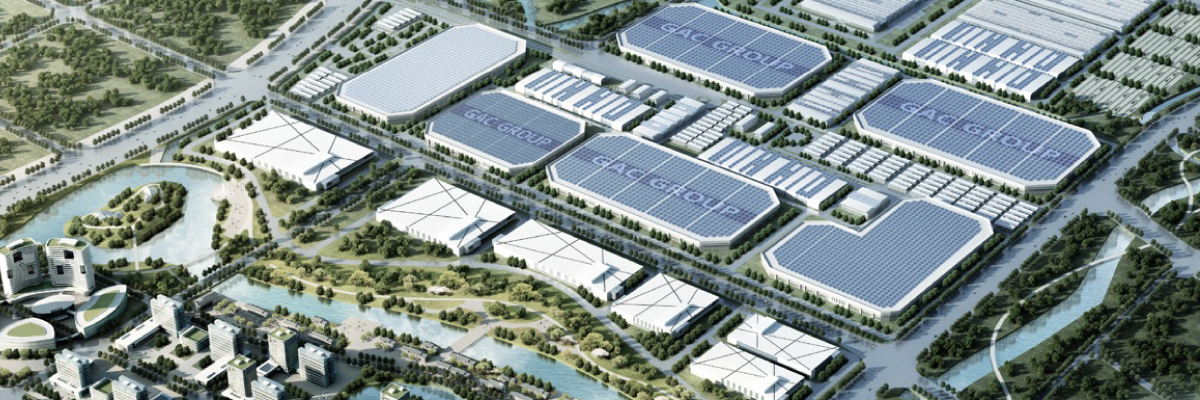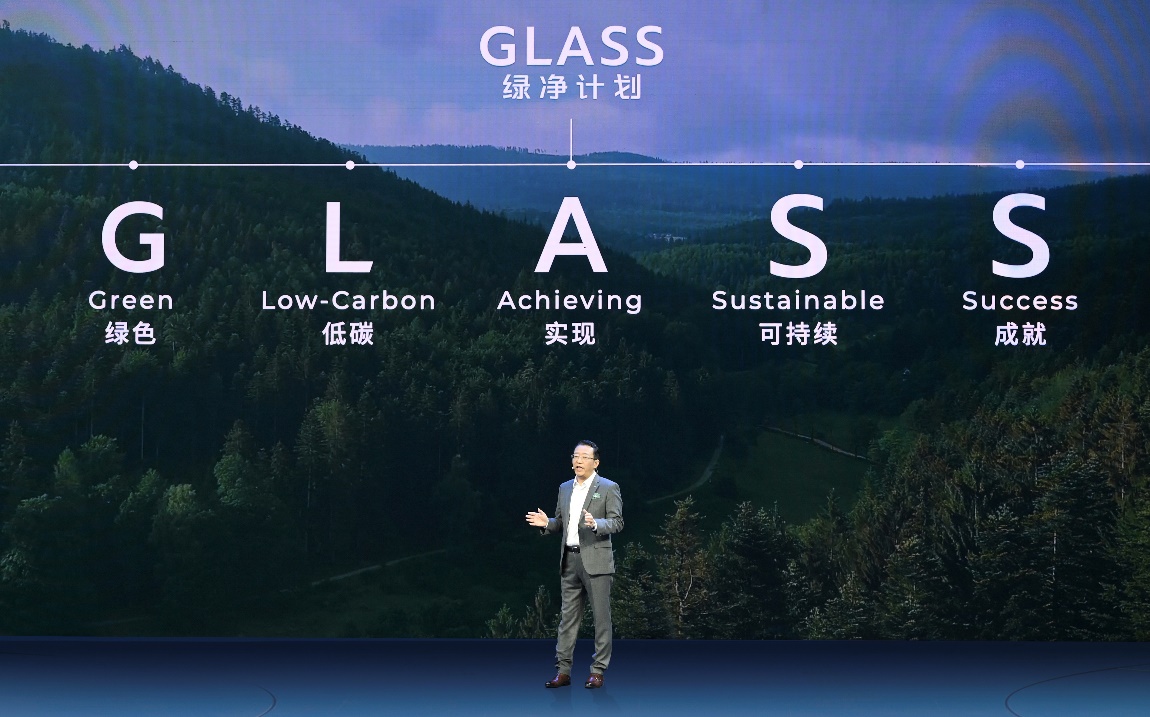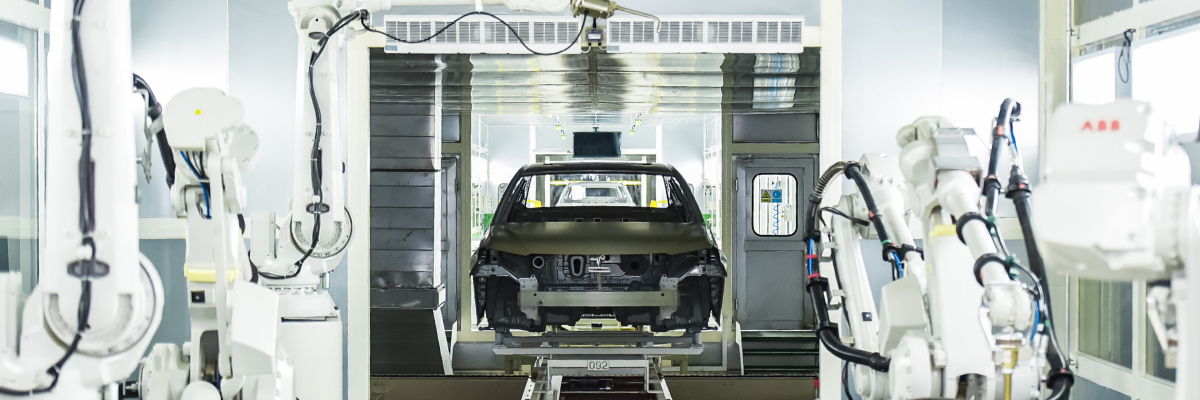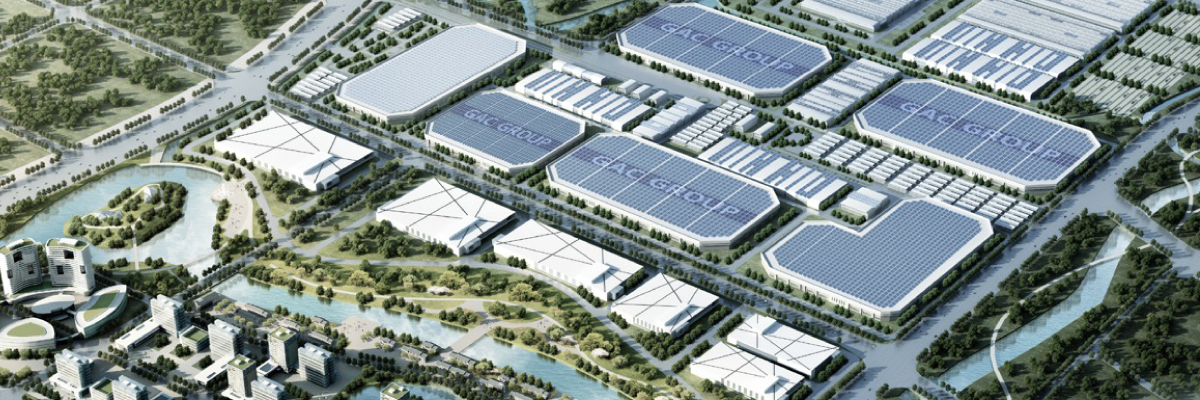As Europe accelerates towards carbon neutrality under the European Green Deal and the Paris Agreement, automakers must innovate rapidly. At GAC, we share this vision. Therefore, we have not only launched a range of electric cars but also taken real action in terms of sustainable manufacturing. As a major Chinese automaker, our push for sustainability goes beyond just making eco-friendly cars – we’re also driving research and supporting green energy and environmental projects.

The Imperative of Sustainable Manufacturing in Automotive
The auto industry needs to change how it builds vehicles. Traditional methods just don't cut it in today's environmentally aware world. There's more pressure than ever to shift toward greener, smarter ways of manufacturing.
1. Environmental Impact of Traditional Manufacturing
Conventional automotive manufacturing depletes natural resources at an alarming rate, such as iron and steel, aluminium, and petroleum products. The production process generates substantial carbon emissions. The waste from factories causes big headaches when it comes to disposal. Not to mention, there's also the issue of polluting the environment. It's becoming clear that we need better solutions.
2. Consumer Demand and Regulatory Pressure
Research demonstrated that more than four-fifths of consumers are willing to pay more for sustainability, as almost they report experiencing first-hand the disruptive effects of climate change in their daily lives.[1] That's why demand for sustainably made vehicles is growing fast. Plus, stricter global regulations mean car makers need to step up – or risk losing business and facing legal trouble.
3. The Link to Mobility
You can't call a car truly green if it's built in a way that harms the environment. Even electric vehicles need to be made with care. Real clean mobility means looking at the entire production process, not just what powers the car.
GAC's Vision for Sustainable Manufacturing
GAC Group's sustainability philosophy centers on achieving carbon neutrality across the entire product lifecycle, reflecting a deep commitment to environmental responsibility and long-term value creation. Our “GLASS” (Green, Low-carbon, Achieving, Sustainable, Success) initiative sets ambitious targets: achieving full lifecycle carbon neutrality by 2050 (with a challenge goal of 2045), and ensuring that by 2025, 50% of its proprietary brand vehicle sales are new energy vehicles, rising to 50% for the entire group by 2030. Furthermore, GAC is actively exploring consumer carbon accounts and developing zero-carbon factories and industrial parks, demonstrating a holistic approach to sustainable manufacturing.
Sustainability is deeply integrated into GAC's corporate strategy through its “1615” and “e-TIME” action plans, which emphasise technological innovation, electrification, intelligent manufacturing, and digital transformation. These strategies drive the company's transition to a world-class technology enterprise, balancing high-quality growth with environmental stewardship and social responsibility.

GAC's Innovations in Sustainable Manufacturing
We have made significant strides in aligning our GAC manufacturing practices with global sustainability goals. Our innovations span multiple areas of manufacturing technology and process optimisation.
1. Energy Efficiency and Renewable Energy Integration
We have implemented solar panel installations and smart energy systems across our manufacturing facilities. Our Thailand plant features an industry-leading ‘light-storage-charge-swap integration’ energy system. Through the large-scale application of technologies such as “photovoltaic power generation + intelligent energy storage, ultra-fast charging, and battery cascade utilisation,” factories can effectively reduce production energy consumption. It can coexist harmoniously with the environment and achieve sustainable development.
These initiatives have significantly reduced our carbon emissions and operational costs. Facilities like Times GAC and GAC AION's new energy plant have achieved carbon neutrality certifications. Some facilities have reached “zero-carbon” status from the start of production.
2. Advanced Materials and Lightweighting
We employ recycled materials and bio-based composites in our vehicles. Advanced lightweight alloys are used to reduce body mass while maintaining safety standards. Safety and lightweight design have reached world-leading levels, maximising the protection of occupant safety.
In addition, the adoption of lightweight materials directly contributes to improved fuel economy and AION EV driving range. By reducing vehicle mass, we minimise energy consumption per kilometre. This approach supports both environmental and economic performance.
3. Waste Reduction and Circular Economy Practices
We have established robust recycling programs targeting batteries, tires, and production scrap. These programs include initiatives to upcycle materials and integrate reclaimed resources back into production. At our factories, waste is sorted and processed with an emphasis on reuse and closed-loop systems.
We have moved away from depending on virgin materials, and we are keeping more waste out of landfills. It's a win for the planet, and it helps us stick to our ESG promises – plus, it saves on expenses too.
4. Smart Manufacturing and Automation for Sustainability
We leverage AI and IoT in our smart factories to enhance sustainability through precise production control. Our GAC Yichang plant integrates machine vision with AI for zero-defect quality control. We employ ultrasonic testing and 3D tracking to reduce material waste.
These GAC EV smart systems enable greater efficiency, fewer errors, and lower environmental impact. Real-time monitoring of energy and material usage allows us to dynamically optimise operations. This conserves resources while boosting productivity.

Conclusion
Sustainable manufacturing is a fundamental shift in automotive production. At GAC Group, we have embraced this transformation through comprehensive initiatives. We believe that caring for the planet doesn't mean sacrificing progress. Through our GLASS Plan and a strong focus on carbon neutrality by 2050, we are moving the industry forward. Learn more on our website about how we are protecting our global village.
Reference
[1] Consumers willing to pay 9.7% sustainability premium, even as cost-of-living and inflationary concerns weigh: PwC 2024 Voice of the Consumer Survey. Available at: https://www.pwc.com/gx/en/news-room/press-releases/2024/pwc-2024-voice-of-consumer-survey.html (Accessed: July 11, 2025)


